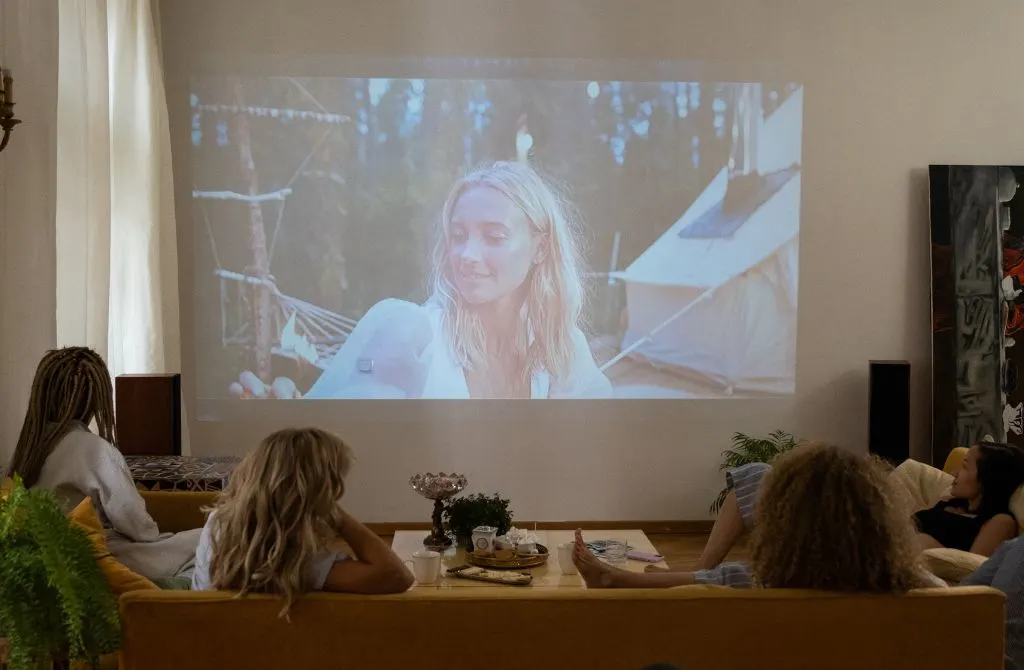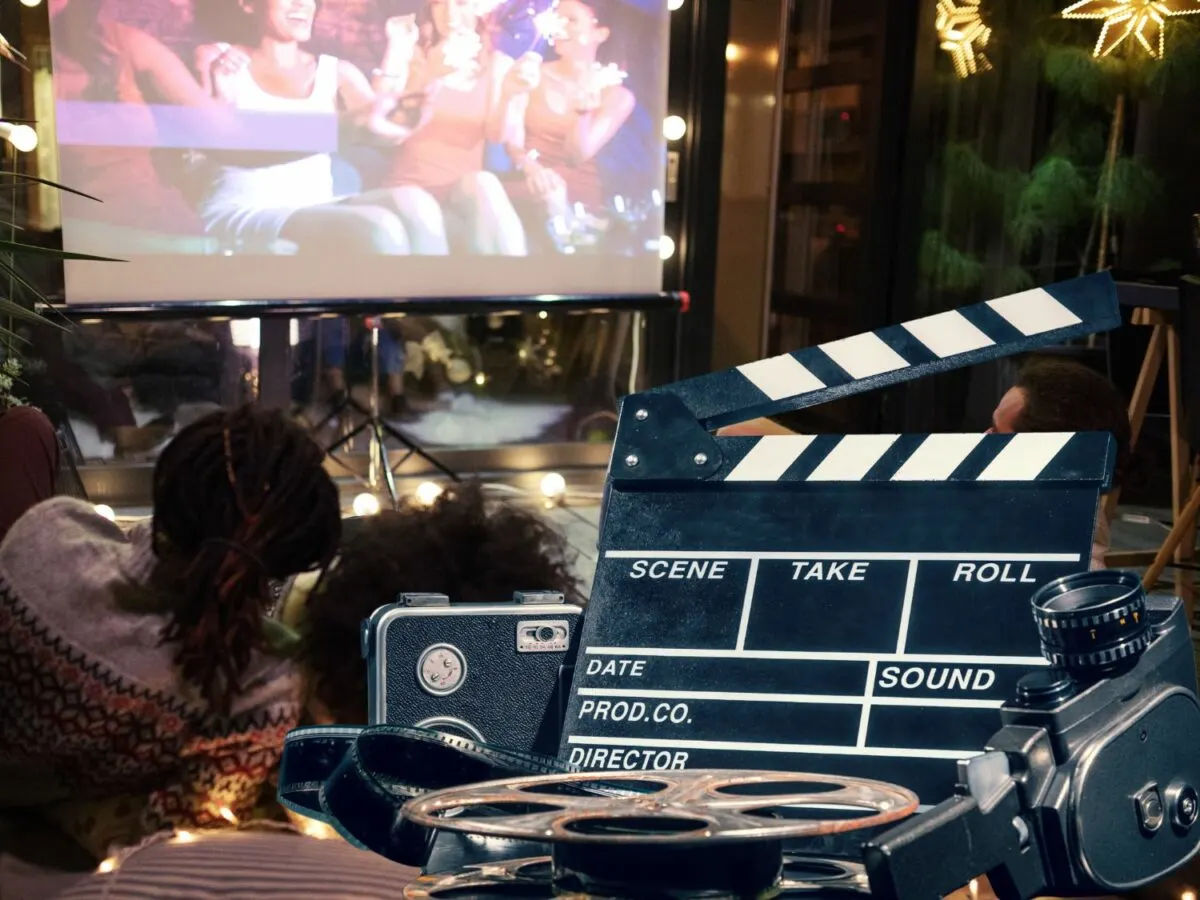France, with its deep cultural heritage and forward-thinking approach to LGBTQ+ rights, has given the world some of the Best French Gay Movies, showcasing its prowess in cinematic storytelling. French cinema, known for its artistry and depth, offers an array of films that explore the lives and loves of the LGBTQ+ community.
These narratives range from intimate love stories to compelling social commentaries, captivating global audiences by transcending borders and challenging societal norms with their universal appeal and profound insights.
In this exploration, we delve into the artistic and cultural landscape of French gay films, highlighting their impact on LGBTQ+ representation in cinema. Spanning from the bustling streets of Marseille to the historic charm of Lyon, from the vibrant culture of Toulouse to the picturesque beauty of Nice, and the maritime heritage of Nantes, these films mirror the diversity and richness of France itself.
We will discuss films like François Ozon’s sensually provocative “Swimming Pool,” capturing the essence of these regions, and Céline Sciamma’s profoundly tender “Water Lilies,” which resonate with the spirit of these cities. Each film is a testament to exceptional storytelling and captivating performances, woven with compelling cinematography. These cinematic masterpieces, set against the backdrop of France’s largest cities beyond Paris, invite audiences to immerse in narratives that celebrate love, identity, and the human spirit, thereby enriching the broader landscape of LGBTQ+ cinema.
Through the lens of talented filmmakers, we aim to showcase the breadth and depth of these films, underlining their significant cultural contributions.

As we celebrate the artistry and impact of these remarkable films, we also recognize the vital role they have played in fostering dialogue, challenging stereotypes, and promoting inclusivity. By examining the best gay films set in France, we hope to shed light on the beauty and power of LGBTQ+ cinema, emphasizing the significance of these stories in the broader cultural tapestry and the ongoing fight for equality and acceptance.
So, join us on this captivating journey through the world of French gay cinema, where love knows no boundaries and the stories told leave an indelible imprint on our hearts and minds.

Wondering where to watch? It depends on where you live in the world and which streaming services you have. We link to the streaming service we watch on in each case - be it Netflix, Amazon Prime, Apply TV+, or elsewhere.
You can get one month free of Amazon Pride (or a 6-month trial for students) of Amazon Prime and also get immediate access to FREE Two Day shipping, Amazon Video, and Music. While you won't be charged for your free trial, you'll be upgraded to a paid membership plan automatically at the end of the trial period - though if you have already binged all these, you could just cancel before the trial ends.
Apple TV+ also has a one-week trial, and Hulu has a one-month trial (which can be bundled with Disney!). Another option might be using a VPN to access Netflix titles locked to other regions. Netflix is now available in more than 190 countries worldwide and each country has a different library and availability. US Netflix is (understandably) one of the best.
While we wish everything could just be in one place - for now, it seems these are the best streaming platforms to watch on.
In this article we will cover...
BPM (Beats per Minute) (2017)
BPM (Beats per Minute) is a poignant and compelling film directed by Robin Campillo, a talented French filmmaker known for his thought-provoking works. Campillo began his career as a screenwriter and collaborated with acclaimed director Laurent Cantet on several projects before making his directorial debut with the film Les Revenants in 2004. His unique storytelling style and ability to tackle sensitive subjects with authenticity and empathy have garnered him critical acclaim.
Set in early 1990s Paris, BPM revolves around the activism and struggles of the Paris branch of ACT UP, a group dedicated to raising awareness and combating the HIV/AIDS epidemic. The film follows a young man named Nathan, who joins the organization and becomes immersed in their passionate efforts to challenge the government, pharmaceutical companies, and society’s indifference towards the crisis.
At its core, BPM explores not only the devastating impact of the AIDS epidemic but also the power of collective action and the importance of love and connection in the face of adversity. The film delves into the personal lives of its characters, emphasizing their emotional journeys and the strength they derive from their relationships with one another.
BPM (Beats per Minute) serves as a reminder of the importance of activism, compassion, and unity in the face of adversity. It is a moving and unforgettable cinematic experience that will leave a lasting impact on its viewers, urging them to reflect on the ongoing struggles faced by marginalized communities and the need for solidarity in the fight for justice and equality.
Portrait of a Lady on Fire (2019)
Céline Sciamma, a renowned French filmmaker, directs the captivating masterpiece Portrait of a Lady on Fire (2019). Sciamma has made a name for herself through her powerful and intimate portrayals of female experiences in films such as Water Lilies (2007) and Tomboy (2011). Her works often explore themes of identity, sexuality, and coming-of-age, with a distinct focus on the female perspective.
Set in 18th-century France, Portrait of a Lady on Fire follows the story of Marianne, a young painter, who is commissioned to create a portrait of Héloïse, a young woman betrothed against her will. However, Héloïse refuses to pose, and so Marianne disguises herself as a companion and secretly observes her, capturing her likeness from memory. As the two women spend time together, a deep and forbidden connection begins to form between them, ultimately unraveling into a passionate love affair.
The film’s setting, a remote coastal area of Brittany, serves as a stunning backdrop for the unfolding drama. Sciamma captures the rugged beauty of the landscape, which mirrors the raw emotions experienced by the characters. Through meticulous attention to detail, the film transports viewers to a different era, enveloping them in the melancholic atmosphere of the time.
For anyone seeking a cinematic experience that is both visually stunning and emotionally profound, Portrait of a Lady on Fire is an absolute must-watch. Sciamma’s impeccable direction, coupled with exceptional performances from the cast, creates a film that will resonate long after the credits roll. Prepare to be enthralled by its captivating storytelling, rich symbolism, and exploration of the depths of human emotion.
Water Lilies (2007)
Water Lilies is a thought-provoking French film directed by Céline Sciamma. The film delves into the lives of three teenage girls living in the suburbs of Paris. Marie, Anne, and Floriane navigate the complexities of adolescence, friendship, and sexuality.
As the story unfolds, their lives intertwine in unexpected ways, leading to a series of self-discovery and emotional revelations. Sciamma skillfully crafts a narrative that captures the rawness and vulnerability of adolescence, exploring the desires and uncertainties that shape their journeys.
Set against the backdrop of a suburban swimming pool, Water Lilies immerses viewers in a distinct sense of place. Sciamma expertly captures the languid atmosphere of the pool, utilizing it as a metaphor for the characters’ emotional states. The stifling heat, the shimmering water, and the enclosed environment contribute to the film’s evocative atmosphere, reflecting the characters’ internal struggles and desires.
Water Lilies is a captivating cinematic experience that invites viewers into the intimate world of its characters. Through its honest and empathetic storytelling, the film provides a poignant exploration of adolescence, sexuality, and identity. It serves as a testament to Sciamma’s directorial prowess and her ability to create compelling narratives that resonate with audiences.
Water Lilies is a great thought-provoking exploration of adolescent identity and a sensitive portrayal of LGBT themes. The film’s authentic performances, captivating cinematography, and powerful storytelling make it a must-see for cinephiles and anyone interested in thoughtfully crafted narratives. Water Lilies is an exquisite example of the power of cinema to illuminate the human experience and challenge societal norms.
Tomboy (2011)
Tomboy is a French drama film directed by Céline Sciamma, an accomplished filmmaker known for her poignant explorations of gender and identity. The film revolves around a 10-year-old girl named Laure, who moves to a new neighborhood during the summer. Seeking adventure and a fresh start, Laure presents herself as a boy named Mikäel to her new friends.
As the story unfolds, Laure’s gender identity exploration unfolds with sensitivity and authenticity, navigating the complexities of childhood curiosity, self-discovery, and the social pressures that arise from hiding one’s true self.
Set in a suburban neighborhood, the film beautifully captures the idyllic and carefree ambiance of childhood summers. Sciamma skillfully portrays the environment as both a place of liberation and constraint, emphasizing the power dynamics and the unwritten rules that influence Laure’s journey.
Tomboy is a must-watch film for its sensitive and authentic portrayal of gender identity exploration in childhood. Sciamma’s direction, coupled with the remarkable performances of the young cast, creates a deeply moving and relatable experience. The film’s exploration of LGBT themes adds an extra layer of depth and relevance, making it an important contribution to queer cinema.
Through its genuine storytelling, Tomboy invites viewers to reflect on their own journeys of self-discovery and understanding. Whether one identifies with the LGBT community or not, the film offers a powerful narrative that encourages empathy, compassion, and acceptance. By watching Tomboy, audiences can gain valuable insights into the complexities of identity and the significance of embracing one’s true self.
La Vie d’Adèle (2013)
La Vie d’Adèle, also known as Blue Is the Warmest Color, is a critically acclaimed French film directed by Abdellatif Kechiche. Kechiche, a Tunisian-French filmmaker, has garnered international recognition for his realistic and intimate portrayals of complex human relationships. He is known for his meticulous attention to detail and his ability to capture raw emotions on screen.
La Vie d’Adèle tells the story of Adèle, a young woman navigating her way through adolescence and discovering her identity. The film explores her intense and transformative relationship with Emma, an older woman who ignites a profound desire within her. As their love affair unfolds, Adèle confronts societal norms, explores her sexuality, and embarks on a journey of self-discovery.
Set in contemporary France, the film effectively captures the vibrant and diverse atmosphere of its surroundings. Through its cinematography, the audience is immersed in the streets of Lille, a city in northern France. The urban landscapes and intimate interiors serve as a backdrop for Adèle’s personal growth and emotional experiences, mirroring the complexities of her relationships.
La Vie d’Adèle is perfect film enthusiasts and those interested in thought-provoking storytelling. The film’s powerful performances, particularly by Adèle Exarchopoulos as Adèle, and its compelling narrative make it a remarkable piece of cinema. Furthermore, its exploration of LGBT themes offers a valuable and inclusive perspective on human relationships. La Vie d’Adèle is a poignant and emotionally resonant film that delves deep into the complexities of love, identity, and self-discovery.
Wild Reeds (1994)
Wild Reeds, released in 1994, is a French film directed by André Téchiné. Known for his thought-provoking narratives and nuanced characters, Téchiné has established himself as a prominent figure in French cinema. With a career spanning several decades, he has explored a wide range of themes and genres, consistently delivering compelling storytelling.
Set in southwestern France during the early 1960s, Wild Reeds centers around the lives of four teenagers: François, Serge, Maïté, and Henri. The film beautifully captures their journey of self-discovery and the complexities of their relationships as they navigate adolescence in the midst of political and social turmoil. Against the backdrop of the Algerian War and the turbulent climate of France at the time, their personal struggles intertwine with broader societal issues.
The film’s setting in rural France adds another layer of depth to the story. Téchiné masterfully captures the picturesque landscapes, creating a rich and immersive atmosphere. The tranquil beauty of the countryside serves as a stark contrast to the characters’ inner turmoil and the social unrest surrounding them.
Wild Reeds’ exquisite storytelling, coupled with its exploration of LGBT themes and the historical context in which it is set, makes it a powerful and captivating viewing experience. Téchiné’s deft direction and the exceptional performances of the cast combine to create a film that lingers in the mind, offering a profound reflection on identity, friendship, and the complexities of human relationships.
Stranger by the Lake (2013)
Stranger by the Lake, a French film released in 2013, is a captivating and thought-provoking exploration of desire, obsession, and the precariousness of human relationships. Directed by Alain Guiraudie, the film showcases his unique talent for creating suspenseful narratives within unconventional settings.
Set against the backdrop of a picturesque lakeside cruising spot, Stranger by the Lake follows the story of Franck, a young man who becomes infatuated with Michel, a mysterious and alluring stranger. As their relationship intensifies, Franck becomes entangled in a web of passion, danger, and secrecy, leading to unexpected and harrowing consequences.
Stranger by the Lake skillfully utilizes its natural setting to create an atmosphere of both beauty and menace. The idyllic lakeside location, with its lush vegetation and shimmering waters, serves as a stark contrast to the dark and unsettling events that unfold. Guiraudie expertly captures the dichotomy between the tranquil surroundings and the inner turmoil of the characters, heightening the tension and suspense throughout the film.
You should watch Stranger by the Lake for its gripping storytelling, exceptional performances, and its unflinching exploration of human desire and its consequences. It offers a unique and thought-provoking cinematic experience that will leave you captivated and reflecting long after the credits roll. Brace yourself for a thrilling and unsettling journey into the depths of passion and obsession.
Being 17 (2016)
Being 17 is a film directed by André Téchiné, a renowned French filmmaker known for his insightful storytelling and ability to capture the complexities of human relationships. Téchiné’s career spans several decades, during which he has consistently explored themes of desire, identity, and personal growth.
The film revolves around two teenage boys, Damien and Thomas, who are forced to confront their own prejudices and desires as they navigate their way through the tumultuous years of adolescence. Damien, played by Kacey Mottet Klein, is a sensitive and introspective young man, while Thomas, portrayed by Corentin Fila, is a more aggressive and troubled individual. Their initially hostile relationship gradually evolves into an unexpected bond, blurring the lines between friendship and something deeper.
The story is set in the picturesque French Pyrenees, providing a breathtaking backdrop for the unfolding narrative. Téchiné masterfully captures the beauty of the region, using it to mirror the characters’ internal conflicts and their search for understanding and acceptance.
Being 17 is a compelling and thought-provoking film that showcases Téchiné’s skillful storytelling and ability to capture raw emotions. It offers a nuanced exploration of adolescence, identity, and the complexities of human connection.
I recommend this film to anyone who appreciates powerful performances, evocative cinematography, and stories that delve into the depths of the human experience. Being 17 is a moving and introspective cinematic journey that will resonate with viewers long after the credits roll.
The New Girlfriend (2014)
The New Girlfriend is a captivating film directed by François Ozon, a prominent French filmmaker known for his thought-provoking and emotionally charged works. Ozon’s career has been marked by his exploration of human relationships and societal norms, often delving into complex and sensitive subjects with great sensitivity.
The New Girlfriend revolves around the story of Claire, portrayed by the talented Anaïs Demoustier, who is left devastated after the untimely death of her best friend, Laura. Claire discovers a shocking secret when she visits Laura’s widower, David, played by Romain Duris. David is secretly living as a woman named Virginia, seeking solace in the freedom of his true identity. Intrigued and compassionate, Claire becomes Virginia’s confidante, forming a deep bond that challenges societal expectations and gender norms.
Set in contemporary Paris, The New Girlfriend effectively captures the city’s vibrant atmosphere and cultural nuances. The cinematography beautifully showcases the diverse settings, from elegant Parisian apartments to bustling streets, providing a rich backdrop for the characters’ emotional journeys.
The New Girlfriend serves as a powerful reminder of the importance of acceptance and the liberation that comes with embracing one’s true self. The New Girlfriend is a thought-provoking and emotionally resonant experience that will leave you contemplating the complexities of love, friendship, and the boundaries of societal expectations.
Les Invisibles (2012)
Les Invisibles, a film directed by Sébastien Lifshitz, offers a captivating narrative that delves into the lives of aging gay and lesbian individuals. Lifshitz, a French filmmaker known for his exploration of LGBT themes, has established himself as a prominent figure in the contemporary cinema scene.
Throughout his career, Lifshitz has showcased a remarkable ability to portray the complexities of marginalized individuals. With films such as Wild Side and The Lives of Thérèse, he has earned critical acclaim and a reputation for his sensitive and thought-provoking storytelling.
Set in the picturesque French region of Gard, Les Invisibles follows a group of elderly LGBT individuals who share their poignant and often untold stories. Through a series of interviews and personal narratives, the film sheds light on the challenges faced by these individuals, including societal prejudice, personal sacrifice, and the yearning for acceptance.
The film’s setting in the picturesque French region adds a distinct charm to the storytelling. The lush landscapes, quaint villages, and rich cultural heritage serve as a backdrop, subtly accentuating the characters’ journeys and enhancing the overall visual experience.
Les Invisibles is a must-watch film that delicately addresses LGBT themes while providing a heartfelt exploration of human resilience and the pursuit of happiness. Lifshitz’s masterful direction, combined with exceptional performances and a beautiful setting, make this film an emotionally resonant and thought-provoking experience for all audiences.
Wild Side (2004)
Wild Side is a captivating French film directed by Sébastien Lifshitz, known for his exploration of LGBTQ+ themes in his works. Lifshitz, a critically acclaimed filmmaker, has consistently pushed boundaries with his narratives, often delving into complex and unconventional characters. His filmography includes thought-provoking works like Come Undone and The Invisible Ones, both of which received wide acclaim for their sensitive portrayal of marginalized communities.
Set against the backdrop of Paris and the American West, Wild Side tells a compelling story that revolves around the life of Stéphanie, a transgender woman played brilliantly by Stéphanie Michelini. Stéphanie works as a prostitute to support herself and dreams of undergoing gender reassignment surgery. As the film progresses, Stéphanie finds herself entangled in a tumultuous love triangle involving her boyfriend, Djamel, and a client named Mikhail.
In addition to its compelling story and compelling characters, Wild Side captures the essence of its settings. From the gritty streets of Paris to the vast, open landscapes of the American West, the film portrays these contrasting environments with a remarkable attention to detail. This juxtaposition highlights the inner conflicts faced by the characters and adds depth to their experiences.
Wild Side is a mesmerizing film that showcases Sébastien Lifshitz’s talent for storytelling and his commitment to exploring diverse narratives. With its thought-provoking themes, exceptional performances, and visually striking cinematography, this film is a must-watch for anyone interested in LGBTQ+ cinema and stories that challenge societal norms. Prepare to be captivated by its raw emotions and profound exploration of identity.


